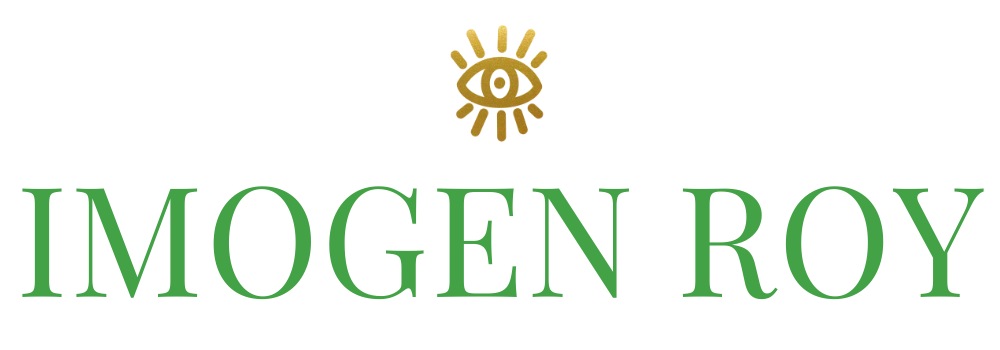Seeing Magic | Be More Scientist
In science, ignorance and failure are not weaknesses to overcome but essential ingredients for success. In this episode, I share ideas for how we can borrow from the scientific method to enrich our business and careers.
A Common Misconception About the Scientific Community
This episode is inspired by the scientific method and one of my coaching clients from last year who told me a story that has stayed with me ever since. It’s a beautiful parable for challenging the ways in which we both see the world and behave within it.
My client, Lana, is a fascinating person. She works as both a professional concert musician and in a neuroscience lab, and shared with me a false perception of both concert musicians and scientists. She said to me that most people believe that scientists are rule-based, methodical, organized, and rigid and that most professional musicians and artists are artistic, creative, and messy.
She found the reverse is true.
From her experience working in collaboration with scientists, she observed that they were the ones who were artistic, chaotic, messy, and creative. They are constantly experimenting, looking for solutions, and not at all rigid or rule-based. Whereas from her experience, most professional musicians are there to perform pieces that were created long ago and it's all about perfection.
You, as the musician, do not get to insert your own uniqueness, creativity, or experiment. With music, the notes are already written down, you just have to follow them. Concert musicians are, in fact, incredibly methodical.
I found this fascinating because I had this false perception of science being very rule-based and rigid. When in fact, it's not. Science is full of idiosyncratic people. Ignorance and failure are not only tolerated but are absolutely essential to success in science. Science is based on iterative discoveries and new information being built. Science is only true until the next discovery; there's nothing rigid about it. It’s certainly very alive.
Ignorance and Failure Are Essential Ingredients for Success
I want to come back to these two words: ignorance and failure.
Good scientists actively seek opportunities to be ignorant and to fail. It's only in the space of ignorance and failure that you give yourself a chance to face and evaluate assumptions, biases, superstitions, and truly push the edges of whatever you're looking at.
This is powerful for us to consider in the context of our personal lives, but also in our careers and in our businesses.
We come out of an education system that tends to be incredibly rigid and rule-based. There's always a right answer and we either get it right or wrong, and it does not make space for experimentation, iteration, and creative discovery. Scientific progress is not possible unless scientists deliberately do impossible things, pursue dumb questions, and are willfully ignorant about a topic in order to remain open to the potential possibilities that lie there.
Lana said to me that scientists willingly sign up for a lifetime of failure. They assume that they may never make a great independent discovery or get credited for something they did. Yet, they willingly go back into the lab or the research station, again and again, to experiment and further the field.
When she told me that my first thought was: this goes against everything that we're taught about designing our life for success. It's remarkable that there are people who choose that path, knowing what they know. They have a deep reverence and love for the process. They understand that all discovery is collective and all progress is iterative.
That is what science and LIFE are all about.
You know the common quote, “Life's a journey, not a destination?” It’s highly likely that was first said by a scientist.
The more I've looked into the scientific method, the more it has challenged my understanding of what failure is. In the true scientific method, failure is difficult to define because it is what moves science forward. Failure provides information, points towards other possibilities, and teaches us. A scientific failure provides greater understanding, awareness of new dynamics, and possibilities. How can we describe failure as “not a success”? Failure is in alignment with growing the process. It's generative.
We, too, can borrow this new understanding of what failure is. Not to reframe failure so that we can feel better about it, but so that we see it as something that is advancing us. Teaching us. The way we digest failure is important. The more scientific we can be about the experiments we do and the way we evaluate and digest our failures, the more we can mine extra knowledge, wisdom, understanding, direction, energy, and dynamism, instead of writing them off as a source of guilt and shame.
We’re not scientific enough in business, work, life, or in our careers. In many cases, we're much more like the concert musicians who are handed out the sheet music to practice and rehearse to perfection. In our careers and businesses, we're often using someone else's blueprint and rules, with no awareness of the experiment that created those rules, the environment in which the other person is operating, or whether their conditions have anything to do with ours. If the blueprint doesn't work for us, we find ourselves wrong rather than setting it up as an experiment.
Doing experiments and taking physical action are game-changing in life and business. When signing up for a never-ending commitment to a new habit or a new way of doing things, failure is almost certain. We live and work in cycles so it's very difficult to commit to a permanent state of something new before we've even tried it.
Instead, do an experiment.
Set a hypothesis.
Set a timeframe.
Make sure that you have all the resources needed.
Suddenly, life becomes a lot more alive and interesting. And it's easier to do hard things when creating a firm container like a scientist.
Far too often, we’re focused on perfection, getting it right the first time, and validation. We aren’t bringing our blend of strengths, passion, and values to the table. And we wonder why we don't succeed.
By embracing an experimental way of doing things, we will start to see long-lasting, sustainable success. Through a thorough commitment to experimenting and refining our own unique process, it becomes repeatable and we can start to achieve the same results over and over again.
3 Ways to Be More Scientist in Your Life
1. Embrace rather than reject ignorance and failure.
How many times have you not done something because you were afraid of not getting it perfect the first time or afraid of failing?
To be more scientist is to understand that both ignorance and failure are essential for success.
Scientists know that theorizing can only get them so far. They have to physically do the experiment in order to observe what will actually happen.
You won't know until you try.
2. Ask better questions.
Okay, you didn't get the result you wanted. What else happened?
What did you learn?
What did you notice?
What did you observe?
What worked?
What else happened?
What's the direction moving forward?
Maybe only 5% of what you did worked. Investigate the 5%. The more attention you put on the 5% that worked, the higher the chance that next time it will be 95% that works.
3. Commit to the process rather than the result.
Commit to showing up to your own process, whether that's your creative process, your growth process, your process to become a more confident public speaker. Commit to the journey of building on small wins, learning, and repeating steps of experimenting over and over again.
Perfection is not the aim.
A Few Ways I’ve Become More Scientist
Many of the biggest ways in which I've grown in my business and personal life have been the result of crazy experiments.
My burnout recovery (watch my popular Youtube video where I break it down here) was an experiment. My Year of Magical Living (and the philosophy behind this podcast!) started as an experiment where I decided to challenge all of the rules I previously lived by that were causing me to burn out. I turned the rules on their head and committed to following through for a year.
I commit to an experiment for any new habit or sport that I take up. I give myself a timeframe and plenty of opportunities to try different ways of doing it – to try it with different people or teachers or to try my own techniques. I give myself the freedom to stop if it's not fun or it's not working for me.
Align + Flow is an active experiment. I know that this curriculum wants to come alive through me, but I'm not exactly sure how yet. Every time I run the program, I learn a little bit more about what's working and what's not. My next commitment is to try a new experiment until I feel confident that the curriculum is being expressed in the right way. And you know what? That process may take me several years, but I'm committed to it because I know I'm moving towards something. I don't know what it is yet, but it feels alive to me. That's what I'm following.
In early 2020, I wrote a book proposal and it was an enormous endeavor. Guess what? It didn't get accepted by the publisher and I haven't done anything with it. But I don't see that as a failure because it gave me so much valuable information. First, I learned I was not ready to write a book. Next, I learned the publisher was not the right publisher for me. I learned the conditions under which I write best, how much fuel I need, and other constraints I need in place to make it possible.
It was an incredibly successful experiment. The book proposal didn't become a book, but it became my Unstoppable coaching program. And that program works! The material wanted another channel to express itself and if I hadn’t tried to write a book, I would have never known.
Commit to the Process
I hope this episode has given you inspiration as to how you can be more scientist in your life, work, and relationships. There is tremendous power in committing to the process rather than the result.
Rigidity and perfectionism will not give us the sense of creativity or personal design that we might be looking for.
It is through the process; through iterations, collaborations, failures, and happy accidents that some of life’s greatest achievements and blessings come to us.
Listen to the Full Episode:
Pin This Episode for Later:



